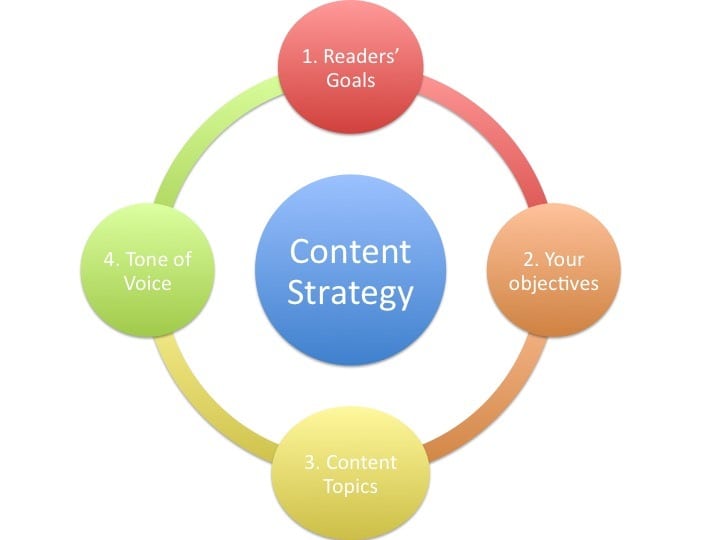5 Key Steps to Developing a Successful Content Marketing Plan
Unlock the secrets to creating a winning content marketing strategy with these 5 essential steps for success in your business.
Table of Contents
As a startup agency, influencer, business owner, or marketing agency, you understand the power of digital marketing in today’s competitive landscape. To stand out and attract your target audience effectively, a well-thought-out content marketing plan is essential. In this blog post, we will explore five key steps to help you develop a successful content marketing strategy that drives results and helps you achieve your business goals.
Improving SEO Ranking
Search engine optimization (SEO) is crucial for increasing your website’s visibility and attracting organic traffic. To improve your SEO ranking:
- Conduct keyword research to identify relevant and highly searched keywords in your industry.
- Optimize your website content, meta tags, and images with target keywords.
- Create high-quality, engaging content that provides value to your audience and incorporates keywords naturally.
- Focus on building quality backlinks from reputable websites to boost your website’s authority.
Creating a Content Marketing Strategy
Content marketing is all about creating valuable, relevant content to attract and engage your target audience. To create an effective content marketing strategy:
- Define your target audience and understand their needs, interests, and pain points.
- Develop a content calendar outlining topics, formats, and publishing schedule.
- Create a variety of content types, such as blog posts, infographics, videos, and podcasts, to cater to different preferences.
- Promote your content across multiple channels, including social media, email, and partnerships, to maximize reach.
Growing Your Social Media Following
Social media is a powerful tool for connecting with your audience, building brand awareness, and driving traffic to your website. To grow your social media following:

Image courtesy of www.geeksforgeeks.org via Google Images
- Identify the platforms where your target audience is most active and focus your efforts on those channels.
- Create engaging and shareable content that resonates with your audience and encourages interaction.
- Utilize hashtags strategically to increase the visibility of your posts and attract new followers.
- Collaborate with influencers and other brands to reach a wider audience and gain credibility.
Running a Successful PPC Campaign
Pay-per-click (PPC) advertising can be a valuable tool for driving targeted traffic to your website and generating leads. To run a successful PPC campaign:
| Step | Description |
|---|---|
| 1 | Define your goals and objectives |
| 2 | Know your target audience |
| 3 | Create high-quality content |
| 4 | Develop a distribution strategy |
| 5 | Measure and analyze results |
- Set clear goals and objectives for your campaign, whether it’s brand awareness, lead generation, or sales conversions.
- Conduct thorough keyword research to identify relevant search terms and phrases for your ads.
- Create compelling ad copy that highlights your unique selling points and provides a clear call-to-action.
- Monitor your campaign performance regularly, analyze the data, and make adjustments to optimize for better results.
Creating an Email Marketing Campaign
Email marketing remains a highly effective channel for nurturing leads, engaging customers, and driving conversions. To create a successful email marketing campaign:

Image courtesy of www.smartinsights.com via Google Images
- Build a targeted email list of subscribers who have opted in to receive communications from your brand.
- Segment your email list based on demographics, engagement levels, and interests to deliver personalized content.
- Create engaging and mobile-responsive email templates that are visually appealing and easy to read.
- Track key metrics such as open rates, click-through rates, and conversion rates to measure the success of your campaigns.
Automating Your Marketing Efforts
Marketing automation can streamline your processes, save time, and improve efficiency in your digital marketing efforts. To automate your marketing:
- Implement marketing automation tools that allow you to schedule emails, social media posts, and other marketing tasks in advance.
- Set up automated workflows to nurture leads, send follow-up emails, and trigger personalized messages based on user behavior.
- Use data and analytics to track the performance of your automated campaigns and make data-driven decisions to optimize results.
- Regularly review and adjust your automation strategy to ensure it aligns with your overall marketing goals and objectives.
By following these five key steps and implementing a comprehensive content marketing plan, you can effectively reach and engage your target audience, drive traffic to your website, and ultimately achieve your business objectives. Remember, consistency, creativity, and data-driven insights are key to success in the ever-evolving world of digital marketing.
FAQ
How long does it take to see results from a content marketing plan?
The timeline for seeing results from a content marketing plan can vary depending on factors such as industry competition, target audience engagement, and marketing budget. Typically, businesses can start to see initial results within 3 to 6 months of implementing their strategy.
Is content marketing only relevant for B2C businesses?
No, content marketing is beneficial for both B2C and B2B businesses. By providing valuable and relevant content to your target audience, you can increase brand awareness, establish thought leadership, drive website traffic, and generate leads, regardless of your business’s target market.
How do I measure the success of my content marketing efforts?
You can measure the success of your content marketing efforts by analyzing key performance indicators (KPIs) such as website traffic, engagement metrics (likes, shares, comments), conversion rates, lead generation, and sales. Utilize tools like Google Analytics, social media insights, and email marketing platforms to track and analyze your performance.
Can I repurpose content across different channels in my content marketing plan?
Guide and Support to Your Success
Yes, repurposing content is a smart strategy to maximize your content marketing efforts. You can repurpose blog posts into social media posts, turn webinars into podcasts, or create infographics from research reports. By repurposing content, you can extend your reach, improve SEO, and engage with your audience across various platforms.



